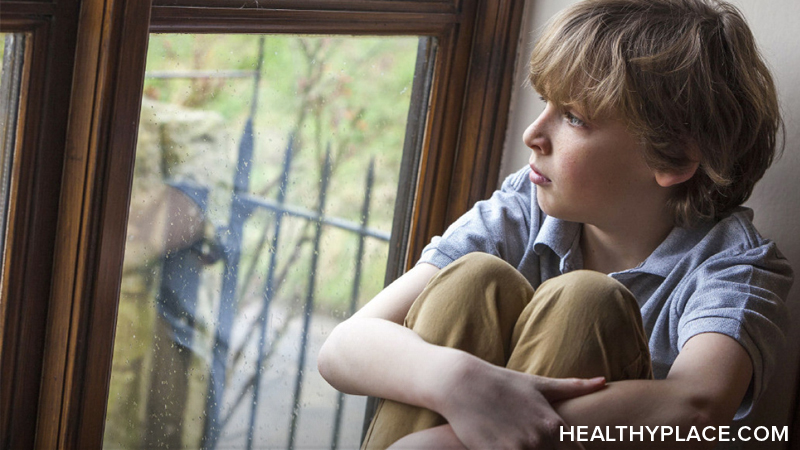
In-depth look at what causes ADHD including: deficiency in neurotransmitters, genetics, brain abnormalities, environmental agents plus food additives and sugar.
Although the exact causes of ADHD are unknown, it is most likely caused by an interaction of genetic, environmental, and nutritional factors, with a strong focus on the interaction of multiple genes (genetic loading) that together cause ADHD.
The Role of Neurotransmitters in Attention Deficit Disorder
There is some evidence that people with ADHD do not produce adequate quantities of certain neurotransmitters, among them dopamine, norepinephrine, and serotonin. Some experts theorize that such deficiencies lead to self-stimulatory behaviors that can increase brain levels of these chemicals (Comings DE et al 2000; Mitsis EM et al 2000; Sunohara GA et al 2000).
Epinephrine
Epinephrine activation of receptors on the cranial vagus nerve increases the release of central norepinephrine and has been shown to enhance memory formation. Patients with ADHD have been shown to have a reduced urinary epinephrine level. Contrary findings are seen in patients with anxiety or PTSD. Given the high incidence of anxiety within ADHD patients as well as the increased risk of accident and injury, testing of epinephrine in ADHD patients should consider these other factors in order to have a better understanding of the role of epinephrine in ADHD.
Dopamine
ADHD is believed to be in part the result of a reduced or hypodopaminergic state. In conjunction with this assumption are the needs for stronger and less delayed behavioral reinforcement. Dopamine is involved in the reward cascade and the increased reinforcement threshold may be a manifestation of the hypodopaminergic state. Children with ADHD have displayed normal task performance under conditions of high incentive, but deficient performance under conditions of low incentive. Methylphenidate is believed to be beneficial in ADHD in part due to its ability to enhance dopamine signaling and therefore may enhance a deficient reward system in ADHD patients. Like many parameters that affect cognitive performance, dopamine levels also display an inverted U-shaped curve when plotted against factors like impulsivity.
The development of the dopamine system prior to and during early adolescence is quite rapid, while the development of the serotonin system during this same time remains steady. A relative deficit in dopamine maturity would be concordant with an increased impulsivity and increased reward threshold seen in ADHD.
A delayed rate of brain development in ADHD is also supported by studies that find patients have increased level of delta and theta brain wave activity compared to controls. Delta and theta brain wave activity normally decreases until adulthood. As such, increased delta and theta wave brain activity can be an indicator of slowed brain maturity. Differences in the rate of serotonin and dopamine system development also may explain why significant numbers of children outgrow their ADHD symptoms.
 Norepinephrine
Norepinephrine
Norepinephrine is an excitatory neurotransmitter that is important for attention and focus. Norepinephrine is synthesized from dopamine by means of the enzyme dopamine beta-hydroxylase, with oxygen, copper, and vitamin C as co-factors. Dopamine is synthesized in the cytoplasm, but norepinephrine is synthesized in the neurotransmitter storage vesicles.; Cells that use norepinephrine for formation of epinephrine use SAMe as a methyl group donor. Levels of epinephrine in the CNS are only about 10% of the levels of norepinephrine.
The noradrenergic system is most active when an individual is awake, which is important for focused attention. Elevated norepinephrine activity seems to be a contributor to anxiousness. Also, brain norepinephrine turnover is increased in conditions of stress. Interestingly, benzodiazepines, the primary anxiolytic drugs, decrease firing of norepinephrine neurons.
PEA
PEA (phenylethylamine) is an excitatory neurotransmitter that tends to be lower in patients with ADHD. Studies that tested urine levels of PEA in subjects with ADHD during treatment with stimulants (methylphenidate or dextroamphetamine), found that the levels of PEA were increased. Additionally, studies report that the efficacy of the treatment correlated positively with the degree to which urinary PEA increased.
Serotonin
Many of the effects of serotonin occur due to its ability to modify the actions of other neurotransmitters. Specifically, serotonin regulates dopamine release. This is evident in the observation that antagonists of either the 5-HT2a or the 5-HT2c serotonin receptor will stimulate dopamine outflow while agonists inhibit dopamine outflow. Similarly, dopamine has a regulatory effect on serotonin and neonatal damage to the dopamine system has been shown to cause large increases in serotonin.
Aspects of the interaction between serotonin and dopamine are believed to affect attention. Evidence of this interaction is present in the observation that reduced serotonin synthesis impairs the positive effects of methylphenidate on learning. Meaning some aspects of methylphenidate's therapeutic effects require serotonin. Serotonin levels are significantly affected by stress and coping abilities combined with other environmental factors and the person's genetic make-up to determine serotonin activity.
Brain Structural Differences in Attention Deficit Hyperactivity Disorder
There may also be some structural and functional abnormalities in the brain itself in children who have ADHD (Pliszka SR 2002; Mercugliano M 1999). Evidence suggests that there may be fewer connections between nerve cells. This would further impair neural communication already impeded by decreased neurotransmitter levels (Barkley R 1997). Evidence from functional studies in patients with ADHD demonstrates decreased blood flow to those areas of the brain in which "executive function," including impulse control, is based (Paule MG et al 2000). There may also be a deficit in the amount of myelin (insulating material) produced by brain cells in children with ADHD (Overmeyer S et al 2001).
Some prenatal factors that increase the risk of developing ADHD have been identified. These include complications during pregnancy that limit oxygen supply to the brain such as toxemia and eclampsia. Other factors during pregnancy that have an impact on normal prenatal development and increase the risk of a child developing ADHD include smoking and fetal alcohol syndrome.
Other factors, such as stress, significantly affect the way the brain functions. If the temperament of the individual under stress allows them to cope in a positive manner, stress can actually increase performance and health. If however, the temperament of the individual under stress is such that the individual does not cope with the stress, the adaptive changes that allow the body to enhance its performance and stress may fail to function. This may lead to either an inability of the body to compensate or the inactivation of some neurological systems. Alternatively, neurological systems may become chronically elevated. In either case, the altered functions of these regions may underlie clinical symptoms.
Genetics and ADHD
Attention disorders often run in families, so there are likely to be genetic influences. Studies indicate that 25 percent of the close relatives in the families of ADHD children also have ADHD, whereas the rate is about 5 percent in the general population.6 Many studies of twins now show that a strong genetic influence exists in the disorder.
Researchers continue to study the genetic contribution to ADHD and to identify the genes that cause a person to be susceptible to ADHD. Since its inception in 1999, the Attention-Deficit Hyperactivity Disorder Molecular Genetics Network has served as a way for researchers to share findings regarding possible genetic influences on ADHD.
Environmental Agents
Studies have shown a possible correlation between the use of cigarettes and alcohol during pregnancy and risk for ADHD in the offspring of that pregnancy. As a precaution, it is best during pregnancy to refrain from both cigarette and alcohol use.
Another environmental agent that may be associated with a higher risk of ADHD is high levels of lead in the bodies of young preschool children. Since lead is no longer allowed in paint and is usually found only in older buildings, exposure to toxic levels is not as prevalent as it once was. Children who live in old buildings in which lead still exists in the plumbing or in lead paint that has been painted over may be at risk.
Brain Injury
One early theory was that attention disorders were caused by brain injury. Some children who have suffered accidents leading to brain injury may show some signs of behavior similar to that of ADHD, but only a small percentage of children with ADHD have been found to have suffered a traumatic brain injury.
Food Additives and Sugar
It has been suggested that attention disorders are caused by refined sugar or food additives, or that symptoms of ADHD are exacerbated by sugar or food additives. In 1982, the National Institutes of Health held a scientific consensus conference to discuss this issue. It was found that diet restrictions helped about 5 percent of children with ADHD, mostly young children who had food allergies.3 A more recent study on the effect of sugar on children, using sugar one day and a sugar substitute on alternate days, without parents, staff, or children knowing which substance was being used, showed no significant effects of the sugar on behavior or learning.4
In another study, children whose mothers felt they were sugar-sensitive were given aspartame as a substitute for sugar. Half the mothers were told their children were given sugar, half that their children were given aspartame. The mothers who thought their children had received sugar rated them as more hyperactive than the other children and were more critical of their behavior.5
Source: NIMH ADHD Publication
next: Misdiagnosing ADHD
 I, as have many Native American people, have been tremendously affected by the consequences of alcohol addiction running rampant through my family, my clan, my tribe, and friends and family in other tribes.
I, as have many Native American people, have been tremendously affected by the consequences of alcohol addiction running rampant through my family, my clan, my tribe, and friends and family in other tribes. Jealousy is an emotion resulting from the resentfully suspicious nature of man. It is a universal emotional trauma caused by things as well as people. Jealousy is a reaction to a perceived threat - real or imagined - to a valued relationship or to its quality. Jealousy has a mind of its own and it is strong enough to make us believe and see things that are not even there or that have not happened yet.
Jealousy is an emotion resulting from the resentfully suspicious nature of man. It is a universal emotional trauma caused by things as well as people. Jealousy is a reaction to a perceived threat - real or imagined - to a valued relationship or to its quality. Jealousy has a mind of its own and it is strong enough to make us believe and see things that are not even there or that have not happened yet. Despite the importance of nutrition in managing type 1 diabetes, eating disorders and unhealthy weight-control tactics are not uncommon in young women with the disease -- and the combination can lead to serious complications, a new study shows.
Despite the importance of nutrition in managing type 1 diabetes, eating disorders and unhealthy weight-control tactics are not uncommon in young women with the disease -- and the combination can lead to serious complications, a new study shows. Couples need to go through the ups and downs, experience the traumas and revel in the successes of their relationship in order to grow. Commitment to complete the journey, come what may, nurtures the love needed to arrive there together.
Couples need to go through the ups and downs, experience the traumas and revel in the successes of their relationship in order to grow. Commitment to complete the journey, come what may, nurtures the love needed to arrive there together. Hiding use; lying and covering up
Hiding use; lying and covering up
 Norepinephrine
Norepinephrine Every man's worst nightmare is to realize, in the heat of a passionate moment, that he can't get an erection. Lucky for many men, we live in the twenty-first century and all the research in medicine is starting to pay-off. Today if you have erectile dysfunction, you have a variety of treatment options at your disposal, as well as quick fixer-upper drugs that can provide a temporary solution. We've already discussed the
Every man's worst nightmare is to realize, in the heat of a passionate moment, that he can't get an erection. Lucky for many men, we live in the twenty-first century and all the research in medicine is starting to pay-off. Today if you have erectile dysfunction, you have a variety of treatment options at your disposal, as well as quick fixer-upper drugs that can provide a temporary solution. We've already discussed the